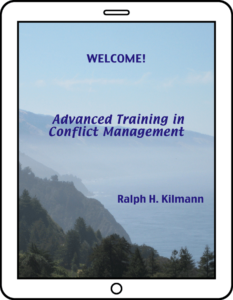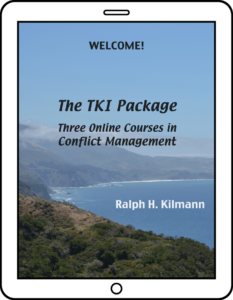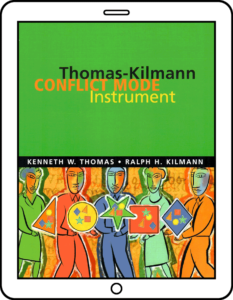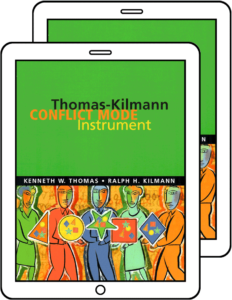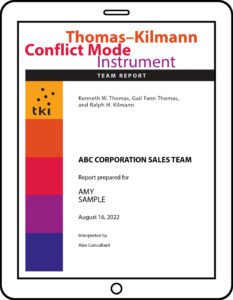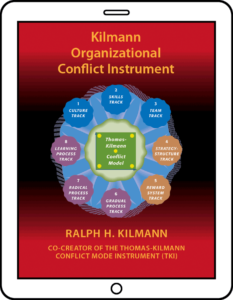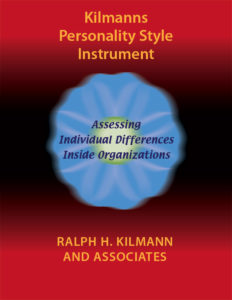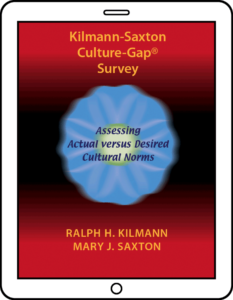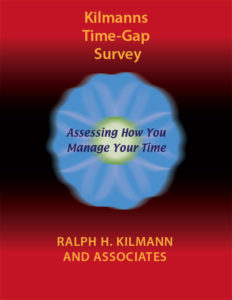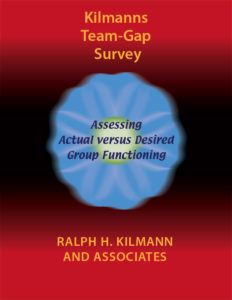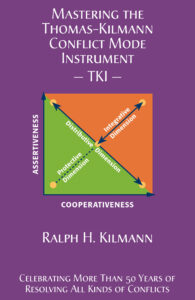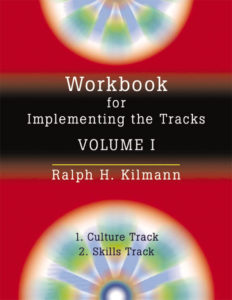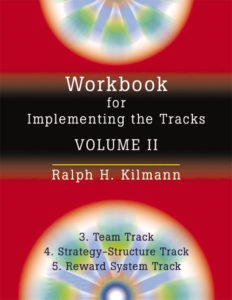DR. KILMANN’S RECOMMENDATIONS
To help you choose which particular courses, assessments, and books will be most relevant to your specialized needs and/or the needs of your clients, Dr. Ralph Kilmann has prepared his recommendations especially to suit your primary or preferred occupational identity—which he summarizes in the following way:
Being better at managing conflict has become the Number 1 objective for training programs in all kinds of organizations. Since conflict creates change and since change begets more conflict, employees must significantly improve their skills for managing both conflict and change on the job. By helping members learn how to address their most challenging problems and conflicts, trainers and facilitators will add extra value to their clients.
11.
The TKI Package
If you would like to take our 3 TKI-based courses in conflict resolution, you can purchase The TKI Package at a discount. Then, for 6 months, you’ll have access to all 12 hours of course videos, 3 course manuals (222 pages), and 2 TKI assessments. This package is a great choice for trainers, consultants, coaches, mediators, therapists, and peacebuilders who wish to gain mastery of the TKI assessment for applications with individuals, couples, groups, organizations, institutions, and nations. To earn our esteemed “Certification for the Thomas-Kilmann Instrument,” you must pass three Final Exams: (1) BASIC Training, (2) GROUP Training, and (3) ADVANCED Training in Conflict Management.





